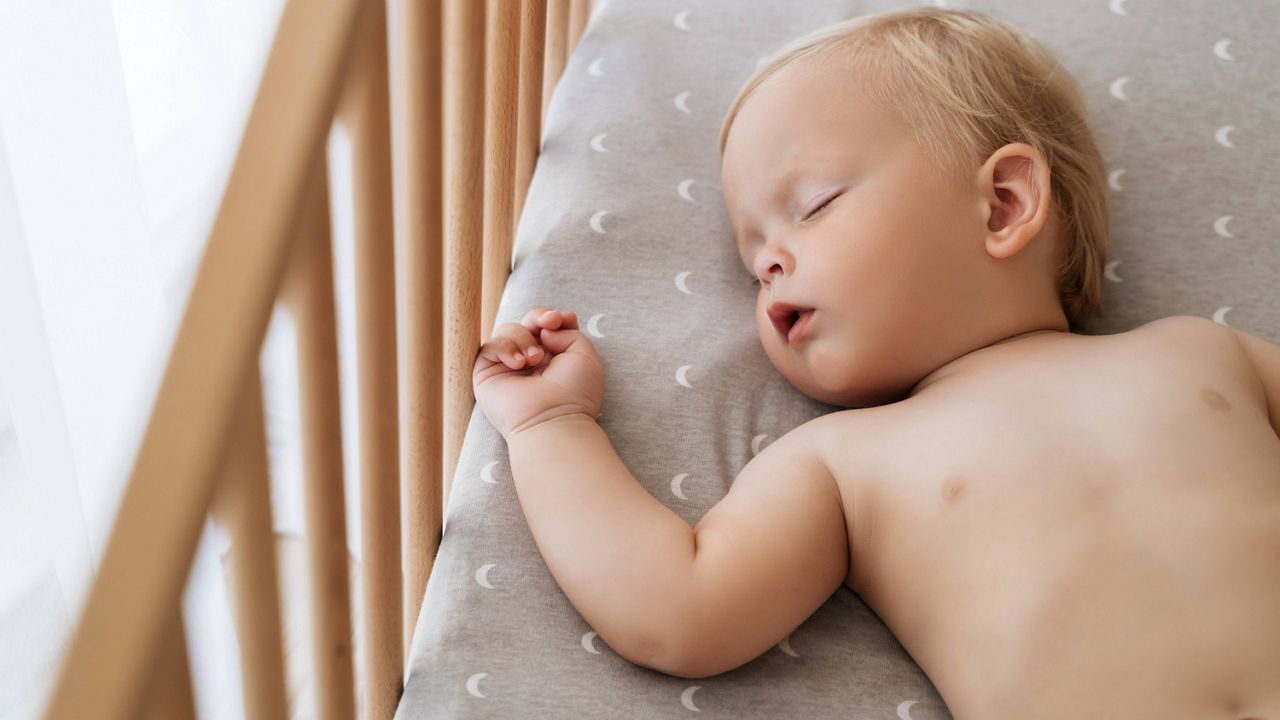TEXAS — Sleep-associated baby deaths are causing concern for medical professionals. The Cook Children’s Medical Center reported it has seen 30 infant deaths while those infants were asleep since January 2022, which it said is more than fatal gunshot wounds and drownings combined.
Most of the documented sleep deaths in 2022 and 2023, so far, involved co-sleeping with a parent or guardian who found their baby unresponsive once they awoke. According to trauma records at Cook Children's, they found other factors that contributed to sleep-associated deaths in infants, including “babies placed on a pillow with a propped bottle, in the crib with a blanket or pillow, in a recliner or on the couch next to a sleeping adult, or wearing a loose T-shirt that covered their face. By the time these infants arrived at the medical center, they were in cardiac arrest or respiratory failure.”
Since she started at Cook in 2008, Sharon Evans, trauma injury prevention coordinator, said the past 15 months of sleep-related infant deaths have been at its highest. Demographic data shows that Black boys from 2 months to 6 months old make up the most of unsafe sleep deaths.

Candle Johnson, a pediatric nurse at Cook Children’s Renaissance Neighborhood Clinic in south Fort Worth, makes it a point to always discuss safe sleeping environments with her patient families.
“Unless it hits home, it doesn’t really resonate. We want them to understand this is a very preventable situation,” Johnson said. “Let’s be proactive today, so we don’t have to be reactive tomorrow. If a fatality happens, then how do we go forward when we could have prevented it from the beginning?”
It can be a tough conversation to have with parents, but Johnson feels it’s a necessary one. Although co-sleep when breastfeeding seems to be easier, she has to advise against doing this as it’s not safe for the baby.
“No one can control their body function once they’re sleeping. When you’re in a deep REM sleep and your infant is next to you, you’re not able to say ‘I won’t roll over on them,’” stated Johnson.
Johnson said there are also some parental challenges that increase the chances of sleep-related infant injuries, which are “a lack of education about safe sleep, distrust of medical advice, young maternal age, and inability to afford a separate crib or bassinet.” Money is tight for many, and some families are only limited to one bed per household.
Nationally, around 3,500 sleep-related infant deaths happen each year, according to the U.S. Centers for Disease Control and Prevention (CDC).
Taking care of a baby can be stress-inducing, and the ever-changing standard of what it takes to be a “good parent” is exhausting for many. But Cook has shared some life-saving sleep recommendations for babies that parents need to know.
- Always place your baby on their back to sleep. Side and stomach sleeping are not safe for infants who can’t roll over.
- Use a firm, flat mattress or sleeping surface with tightly-fitted sheets. The surface shouldn’t be sloped.
- Share a room but not a bed with your baby. Babies should sleep in their own cribs or bassinet.
- Clear your baby’s sleep area of blankets, pillows, bumper pads and soft toys.
- Sleep sacks are recommended instead of swaddling, especially after your baby is able to roll over.
“Cook Children’s is here to make that difference and provide not only the education and the information, but the tools that make us safer,” Dr. Daniel Guzman with Cook Children’s Emergency Department commented. “If we get one person to hear the message and have a shift in their mindset, we’ve already done our job. But we want to do more and we’re going to continue to do more.”
Guzman has been in the room with many families who have to bear with the loss of their child, and he said he can never get over that pain.
The Cook-led Safe Baby Sleep Council aids in supplying parents with sleep sacks and pack-and-plays. Guzman said it’s going to take more public awareness and resources to lower the number of sleep-associated infant deaths.



